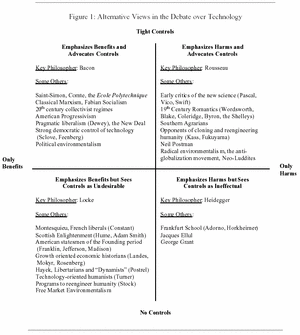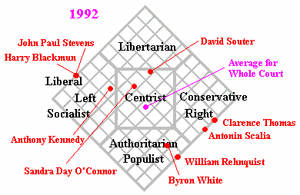We are developing the social individualist meta-context for the future. From the very serious to the extremely frivolous... lets see what is on the mind of the Samizdata people.
Samizdata, derived from Samizdat /n. - a system of clandestine publication of banned literature in the USSR [Russ.,= self-publishing house]
|
George Bush, in the upcoming election, will take at least 45 States. To a 70% confidence factor, he will sweep all but his Democratic opponent’s home State. The reasons for this are as one might expect:
- Even the liberal media and Democrats in Congress are beginning to admit the war on terror overseas is going well.
- All the contenders for the Democratic nomination, with the exception of Joe Lieberman, who’s candidacy looks quite shaky, are turning strongly away from the center.
- With no need to spend any money on a primary campaign at all, Bush will go into the general election with an unprecedented war chest, which may exceed $170,000,000.
- Bush’s one possible Achilles’ heel, the economy, is showing strong signs of recovery.
In a press conference yesterday, I heard President Bush proclaim (and he is likely correct) that the increased propensity of terrorist factions within Iraq to perpetrate ever more vicious attacks on ever softer targets is evidence that, like a wounded and dying beast, they are lashing out in their death throws. My words, not his.
We are seeing similar behavior from terrorist factions within the United States government – those promoting and carrying out the Evil War on Drugs. With both their mantra and their life’s work coming increasingly under question, and unable to strike any significant blow against their enemy’s core, they have turned their attentions more and more towards its soft periphery, and proceed to attack it in an increasingly vicious manner.
The most glaring example of this is the Justice department’s ‘Operation Pipe Dreams’, and its selectively harsh enforcement against actor and comedian Tommy Chong. → Continue reading: Free Tommy Chong
Brian Linse seems to be very self-satisfied today over the fact that John Lott Jr., author of More Guns, Less Crime (1998), is currently on the ropes in defending his work. He is even going to the point of calling Prof. Lott’s central thesis “fraudulent”. I do not know what Brian’s background is, but I would guess from this that he is neither an attorney or a scientist. In either of those cases, he would know that simply because a theory is flawed, that constitutes no grounds for labeling it fraudulent. Brian should also be aware that, simply because a theory is flawed in its details, that’s no reason to abandon the basic concept.
I must admit, I have been quite remiss in following the efforts to debunk Prof. Lott’s work over the past year or so. But this is a pet issue of mine, so I guess it is time I brought my talents to bear on the matter.
Today on Fox News Channel, I caught a brief interview with retired general Alexander Haig where he was deriding the Congressional naysayers and media pundits who chatter on about the ‘terrible cost’ of this war, as if were some high-tech peacetime procurement program. I certainly do not idolize Haig, we have had plenty of differences in the past. But, in this case, he was ‘right on the money.’
Rather than spending too much, our penny-pinching approach to the prosecution of this war to date has gone beyond simply detracting from its swift completion; it has actually served to give aid and comfort to the enemy by indicating that we lack resolve to persevere. Just look at the numbers (as percentage of US GDP):
Cost of Iraqi campaign – 0.5 (his figure)
Total defense spending – 3 (my figure)
Reagan era defense spending – 8 (mine)
Korean conflict – 15 (his)
WWII – 135 (both)
The fact is, the US can pay the estimated $100bn over the next five years ourselves without breaking a sweat. And it would be worth it to avoid getting the likes of the UN and the EU involved. At the same time, we should be staging invasion forces in Iraq ready to march into Iran and Syria, as well as a couple of carrier battle groups off the Korean peninsula.
This is war… it is time we started treating it as such.
This is from an email Glenn Reynolds received concerning his post on the Afghan beauty contestant:
I have greatly enjoyed your blog and read it daily, but at times such entries are rather telling. I am neither a fundamentalist Christian or Muslim, but sometimes your lack of any semblance of discernment about anything other than pragmatic economics or foreign policy is appalling.
Mr. Reynolds, is there anything other than a particular brand of conservative politics that informs your world view? What is it that informs your understanding of what it good, true, and beautiful? Are goodness, truth, and beauty even a part of your world view? From whence comes your sense of ethics or morality? Have you ever asked yourself these questions?
[emphasis mine :K.]
One would think that any ‘daily’ InstaPundit reader would know not only that Glenn is a libertarian, but that his ‘particular brand of libertarian politics’ is approached from the left. But that is not the case here. Nor, experience tells me, is it in many, many others.
This is why it is important, not only that we keep discussion of such arcane matters as n-dimensional Nolan Charts strictly ‘in house’, but we endeavor to create an even simpler model than the original to annunciate our distinct perspective. As most people, even those who consider themselves ‘intelligent’, see a cartesian grid and mumble “oh, math,” as their eyes glaze over like Homer Simpson, and in their mind’s eye, the chart we are showing them turns into a freshly-cut 9″x9″ tray of fudge brownies.
More on this later.
It is a little late in the week for all the dust to have settled, but surely by the following Sunday’s talking head shows, a big winner will be Donald Rumsfeld, and the big losers John Kerry and the sensationalist liberal media, over Rumsfeld’s recently leaked memo concerning the War on Terror.
The reason for this is simple: these are precisely the sort of questions the effective senior executive must ask of his/her subordinates. This war calls for outside the box thinking. If you want that, than it is necessary to shake the box from time to time.
I wonder if Rumsfeld is a fan of Denis Waitley?
Many of you know me already. As I have been haunting the blogosphere for the last three years through comments, emails, and guest articles. Those of you that do not will in due time, so I will skip the typical bio/Curriculum Vitae stuff. I was going to post a Micklethwaitian tale of my 50 mile journey of Southern California’s quite righteously maligned public transit system to Brian Linse’s blogger bash, where I met Perry & Adriana face-to-face for the first time. But that got a bit longish for a forum such as this, so I guess I will have to save it for a chapter in my memoirs.
One of the subjects which has piqued my fancy recently is the concept of N-dimensional variants on the classic Nolan chart. This was initiated a few weeks ago when I read this TCS article by Eugene Miller, on a link from Virginia Postrel. In it Miller attempts, quite successfully, to typify political philosophies on a Nolanesce grid – embrace of change forming one axis, and the need for control over change forming the other.

click for larger image
It occurred to me that one could map this function on top of the typical Nolan chart by equating ‘liberty’ with ‘change’. Further analysis led me to sumise that this conjunction of the two concepts was better expressed in differentials. But, for the purposes of both brevity and accessibility, we will spare that dissertation for another day.
Further indulgence of my curiosity led me to this article by Kelley L. Ross. Therein, Ross expands upon the basic Nolan chart with another dimension of what form of government safeguards what liberties (or not). It’s an interesting read. But the average Samizdata.net reader would likely find the first ten pages review, and should skip right to Liberties in Three Dimensions. Although, this little graphic, concerning the US Supreme Court is rather interesting:

click for larger image
The final seven or so pages constitute the meat of the article, where he makes the point that democracy is no guarantor of liberty. In it, he makes an interesting and rather open-ended point with this:
A Republican form was envisioned by people like James Madison, who wished to impose practical, and not just theoretical limits on government by the use of the Separation of Powers and a system of Checks and Balances. This worked well enough but was ultimately undermined by one grave oversight: The United States Constitution provided no mechanism for its own enforcement. That task was soon taken up by the Supreme Court, but Thomas Jefferson realized that the Supreme Court, as a part of the federal government, could not be trusted to faithfully maintain the limits to the power of the federal government itself: “How can we expect impartial decision between the General government, of which they are themselves so eminent a part, and an individual State, from which they have nothing to hope or fear?”
[Autobiography]
In the end, especially during the Civil War, World War I, the New Deal, and the Sixties, the Supreme Court began to concede extra-Constitutional powers to the federal government simply on the principle that it wanted them. The only mechanism that existed to check the failures of the Court was the torturous avenue of Constitutional Amendment, politically impossible when so many people had begun to believe that unlimited power for the federal government was actually a good thing. And then again, it is hard to know how a newer version of the 10th Amendment could be more plainly worded than the old one. A new Amendment would have to descend to the ignoble level of contradicting specific Supreme Court pronouncements that the original Amendment was simply a “tautology” or “truism” that wasn’t really meant to limit federal power. (See Two Logical Errors in Constitutional Jurisprudence.) An effectively updated Constitution would have to address all the sophistry and dishonesty that was used to undermine the original one, besides providing for such additional checks and balances as would abolish the dictatorial powers of the Court.
Indeed, how does one establish practical limitations on power within a republic? Jefferson’s answer was to have an armed revolution every twenty years or so. Serious talk of that today will get you twenty years or so behind bars.
|
Who Are We? The Samizdata people are a bunch of sinister and heavily armed globalist illuminati who seek to infect the entire world with the values of personal liberty and several property. Amongst our many crimes is a sense of humour and the intermittent use of British spelling.
We are also a varied group made up of social individualists, classical liberals, whigs, libertarians, extropians, futurists, ‘Porcupines’, Karl Popper fetishists, recovering neo-conservatives, crazed Ayn Rand worshipers, over-caffeinated Virginia Postrel devotees, witty Frédéric Bastiat wannabes, cypherpunks, minarchists, kritarchists and wild-eyed anarcho-capitalists from Britain, North America, Australia and Europe.
|





